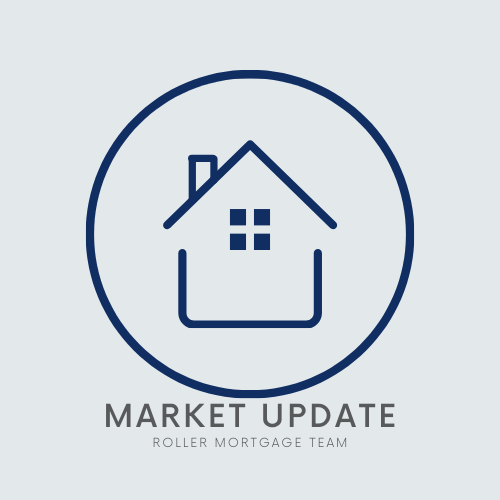Have you ever settled into your favorite armchair, gazed around your beloved home, and found yourself pondering its potential beyond just bricks and mortar? Imagine if those very walls that have witnessed your life’s ups and downs could also offer you a financial cushion during your retirement years. This isn’t a mere daydream but the foundational principle behind reverse mortgages. A financial tool that transforms the equity in your home into a source of income, reverse mortgages have been gaining traction among seniors seeking to optimize their post-retirement finances. So, let’s pull back the curtain and delve deeper into this intriguing world of financial opportunity. Are you ready to journey with us? The get answers to the question, “Is a Reverse Mortgage right for me?”
Is a Reverse Mortgage Right For You?
At its heart, a reverse mortgage flips the traditional mortgage concept on its head. Rather than the classic scenario where homeowners send monthly payments to their lenders, in a reverse mortgage, the roles are reversed: the bank sends payments to the homeowner. Think of it as a way to tap into the equity you’ve built up in your home over the years, converting it into either a lump sum, a steady stream of income, or a line of credit. Imagine the comfort of receiving monthly checks, an extra buffer to your finances, all while still living in and owning your home.
However, as with any financial tool, a reverse mortgage isn’t a one-size-fits-all solution. It comes with its set of requirements, benefits, and potential drawbacks. While the prospect of turning your home’s equity into a source of income sounds enticing, it’s crucial to thoroughly understand the mechanics, implications, and nuances of this financial product. Is it a path that aligns with your retirement goals and financial situation? Let’s unpack the details to help you make an informed decision.
 The Mechanics Behind Reverse Mortgages
The Mechanics Behind Reverse Mortgages
At first glance, the idea of a reverse mortgage may sound counterintuitive, especially when juxtaposed against the backdrop of traditional mortgages that most of us are familiar with. Let’s break it down step by step to understand the underlying mechanics.
- Equity as a Foundation: Your home’s equity, which is the difference between its current market value and any remaining mortgage balance, serves as the foundation for a reverse mortgage. Over the years, as you’ve made payments on your traditional mortgage and as the property value has potentially appreciated, you’ve built up this equity.
- The Payouts: Once you opt for a reverse mortgage, the lender provides payouts derived from this equity. These can be structured in multiple ways: as a lump sum, monthly payments, or a line of credit that you can draw upon as needed. Some homeowners even choose a combination of these options.
- Interest Accumulation: As you receive these payouts, interest gets added to the loan balance. This means that, unlike a traditional mortgage where your loan balance decreases with payments, in a reverse mortgage scenario, your loan balance increases over time due to the payouts you receive and the accumulating interest.
- Ownership and Living in the Home: A significant feature of reverse mortgages is that you continue to own and live in your home. You’re not selling it; you’re merely leveraging the equity you’ve accumulated. However, you must continue to pay property taxes, insurance, and maintain the home in good condition.
- Loan Repayment: The loan becomes due when the last borrower leaves the home, sells the house, or, in some unfortunate cases, passes away. The home is then typically sold, and the proceeds are used to pay off the reverse mortgage. Any remaining equity after the loan is paid off goes to the homeowner or their heirs.
- Protection from Negative Equity: One of the safeguards of many reverse mortgage programs is the “non-recourse” feature. This ensures that even if the home’s value drops below the loan amount, neither you nor your heirs will be obligated to pay more than the home’s value when repaying the loan.
Understanding these mechanics is essential for any homeowner considering a reverse mortgage. While it offers a unique and potentially beneficial financial solution for some, it’s vital to weigh the benefits against the intricacies and long-term implications of such a commitment.
Advantages of Reverse Mortgages
Financial Flexibility
Many retirees find that, while they’re rich in assets, they may be cash-poor. Having a home that’s grown in value over the years doesn’t immediately translate to liquid funds. Here’s where the reverse mortgage shines.
- Turning Equity into Liquidity: The ability to transform the dormant equity in your home into accessible funds is empowering. It allows homeowners to manage unexpected expenses, indulge in some well-deserved luxuries, or even assist family members in need.
- Tailored Disbursement Options: Whether it’s a lump sum to handle a large expense, a line of credit for sporadic needs, or regular monthly payments to supplement pension or social security, the flexibility in disbursement aligns with varied financial needs.
No Monthly Payments
The traditional mortgage can feel like a monthly shackle, especially if finances are tight. But a reverse mortgage offers relief from this monthly obligation.
- Deferred Responsibility: Unlike traditional mortgages that necessitate regular payments to prevent foreclosure, the reverse mortgage requires no such monthly outlays. This can significantly reduce financial stress for retirees living on a fixed income.
- Focus on Living Costs: Without the worry of a monthly mortgage payment, retirees can redirect their finances towards other essentials or even leisure activities.
You Retain Home Ownership
There’s an emotional comfort in living in a home filled with memories, especially in one’s later years. A reverse mortgage respects this sentiment.
- Stay Amidst Familiarity: You’ve celebrated milestones, weathered storms, and created a lifetime of memories in your home. A reverse mortgage ensures you don’t have to uproot your life. You can continue to live amidst the familiar walls, neighbors, and community you love.
- Maintain Control: Even as you tap into the value of your property, you retain all the rights and responsibilities of ownership. You can make modifications, maintain your garden, and even pass the property on to heirs (though the reverse mortgage will need to be settled at that point).
 Qualifying for a Reverse Mortgage
Qualifying for a Reverse Mortgage
Age and Home Requirements
In the world of reverse mortgages, age isn’t merely a sentimental number—it’s a qualifying factor. Typically, the primary borrower needs to be at least 62 years old to be considered. Why this specific age? It’s rooted in the goal to assist seniors in making the most of their retirement years.
Beyond the age factor, the home itself needs to pass muster:
- Primary Residence: The property must be your primary residence. This ensures the product serves those genuinely living in their homes and not investors or those with multiple properties.
- Type of Home: Most single-family homes qualify, and in many cases, so do multi-family homes with up to four units, provided the borrower lives in one of the units. Condominiums and manufactured homes might qualify too, but they typically need to meet certain standards set by the Federal Housing Administration (FHA).
- Home Condition: The home should be in good condition. Any significant repairs required may need to be addressed before or soon after obtaining the reverse mortgage.
Financial Assessment
While you might not be making monthly loan payments, there are still financial responsibilities tied to homeownership, such as property taxes, homeowners insurance, and maintenance costs. Hence, banks won’t simply hand over the keys to this financial vehicle without a thorough check under the hood.
- Review of Income and Credit: Lenders will look at your income, assets, monthly living expenses, and credit history. This isn’t about how much you earn, but rather, whether you’re financially responsible and likely to keep up with ongoing homeowner obligations.
- Set-Asides: If there’s a concern about your financial ability to pay property charges, the lender might set aside a portion of your reverse mortgage funds to pay for these future costs, ensuring that you don’t fall behind.
Drawbacks of Reverse Mortgages
Eroding Equity
While tapping into your home’s equity can be beneficial, there’s a catch. With every payout you receive and as interest continues to mount, the equity in your home diminishes. It’s akin to a melting bar of chocolate under the summer sun – over time, you’re left with less than what you started with. This could limit your financial flexibility should you wish to access your home’s value in other ways in the future.
Costs and Fees
No financial product is without its strings attached. With reverse mortgages, there are several fees to be wary of. From origination fees to service fees, and not forgetting the often substantial closing costs, these can add up. It’s essential to factor in these costs when calculating the potential benefits, ensuring that what’s gained isn’t overshadowed by what’s spent.
Implications for Heirs
Legacy is a concern for many. While reverse mortgages can offer immediate financial relief, they may also mean a reduced inheritance for your loved ones. As the home’s equity gets drawn down, there’s potentially less to leave behind. Heirs will have the choice of repaying the reverse mortgage to retain the home or selling the home to settle the debt, potentially receiving less than expected.
The LeaderOne Lowdown on Reverse Mortgages
So, is a reverse mortgage right for you? It’s not a one-size-fits-all answer. While it offers the allure of financial flexibility without monthly payments, it does come with its caveats. Always prioritize your needs, consult with experts, and understand the fine print.
Choosing a reverse mortgage is a significant decision, and it’s understandable to feel both intrigued by its potential benefits and cautious about its complexities. This tool can provide added financial comfort in retirement, yet it carries implications for your home equity and future inheritance.
It’s crucial to remember that every individual’s financial journey is unique. We recommend seeking expert advice to fully understand the nuances. They’ll guide you through the process, ensuring your decision aligns with your specific needs and long-term goals. Your well-being, both now and in the future, is paramount.
FAQs
- What happens to the reverse mortgage when I pass away?
- Your heirs will have options: They can pay off the mortgage, sell the home to settle it, or walk away, letting the bank claim the property.
- Are there restrictions on how I use the money from a reverse mortgage?
- Not at all! Use it for daily expenses, medical bills, vacations, or a lavish treat for your pet turtle. It’s your call.
- Do I still need to pay property taxes and homeowner’s insurance?
- Yes, you’re still the owner. Hence, you’re responsible for insurance, taxes, and maintenance.
- Is there a risk of owing more than my home’s worth?
- No. Federal regulations ensure you can never owe more than the home’s value at the time of repayment.
- Can I get out of a reverse mortgage?
- Yes, but it may entail repaying the loan. Ensure you understand the terms before diving in.



